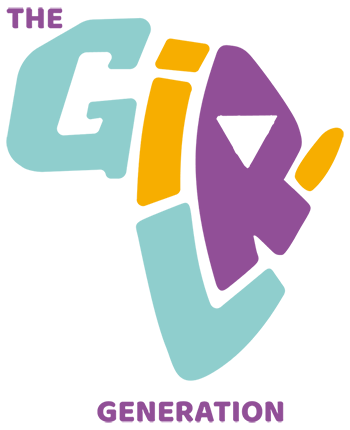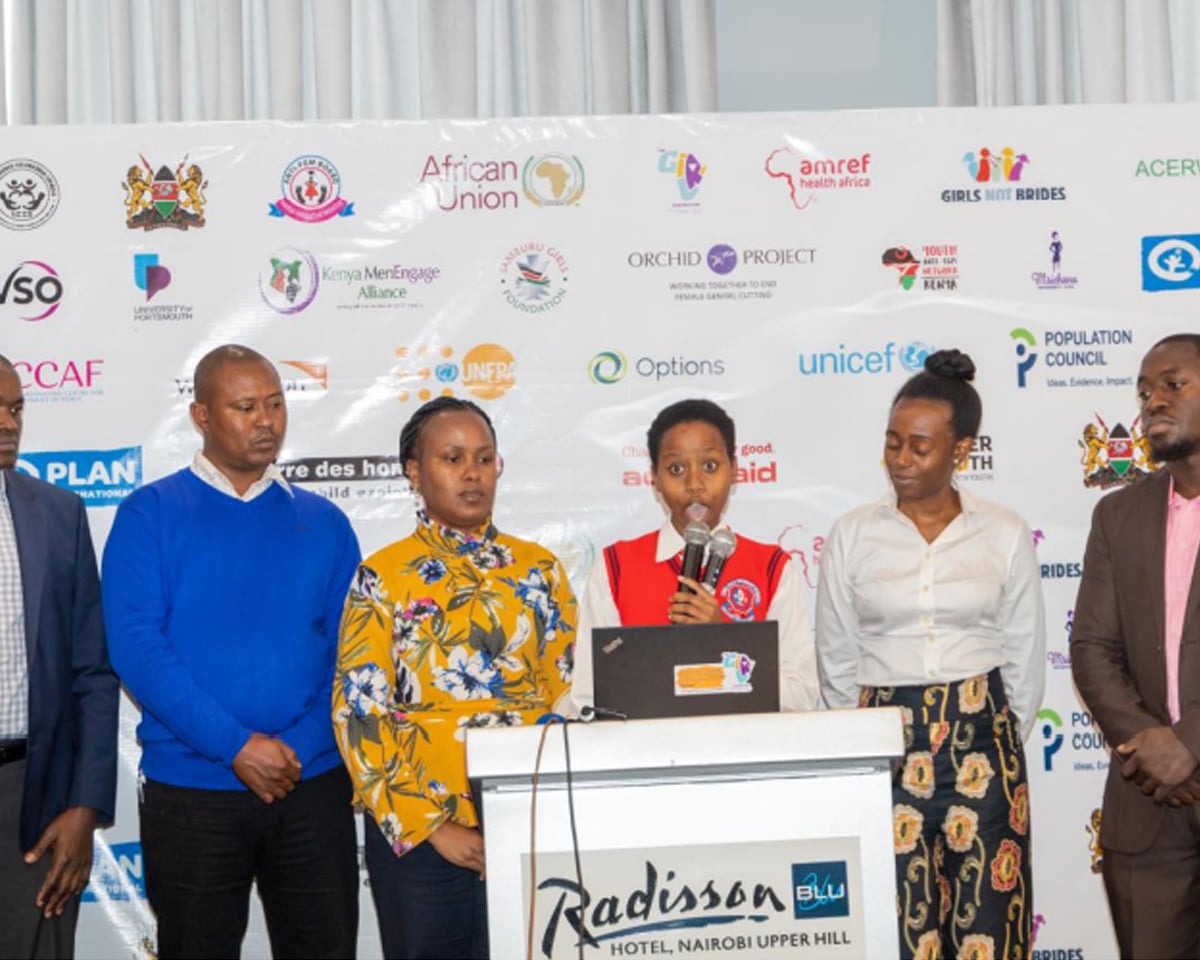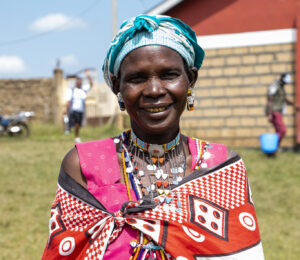Support to Africa-led movement to end FGM/C commemorates the day of the African Child
The Girl Generation (TGG): Support to the Africa Led Movement to End FGM/C Programme has developed Pathways of Change indicating how the programme could accelerate positive change in social attitudes towards ending FGM/C in operational programme areas.
The 2022 theme for the Day of the African Child ‘eliminating harmful practices affecting children: progress on policy and practice since 2013,’ aligns well with one of pathways of change dubbed laws and policies. This pathway focuses on the legal and policy frameworks in place to address FGM/C.
The Girl Generation (TGG): Support to the Africa Led Movement to End FGM/C Programme and like-minded partners organized a pre-event activity on 14th and 15th June 2022. This presented an opportunity for relevant stakeholders to evaluate what has been done and what more needs to be done to eliminate harmful practices in Kenya and advance the realization of children’s rights.
Notably, significant progress has been made since 2013 by the Government of Kenya through incorporation of various approaches by means of research-based evidence in programming, advocacy and mobilization of resources while scoping the landscape of evidence; gender-transformative approach to ending female genital cutting; and leveraging the multi-sectoral approach (MSA) to prevent and respond to harmful practices, specifically FGM and child marriage.
Bernadette Loloju, the CEO for the Anti-FGM Board called on partners and said “Ending harmful cultural practices is a collective responsibility. Let’s all come together and protect our children from harmful cultural practices.”
She further elaborated on the efforts and progress made by the government of Kenya towards ending the practice; and outlined them as follows:
- Inclusion of FGM laws in the constitution of Kenya in 2012;
- Formation of the anti-FGM Board by the president of Kenya in 2019;
- Development of community dialogue guidelines that encourage community led discussion sessions;
- Capacity building of the community to better understand FGM;
- Development of alternative rites of passage guidelines;
- Development of men’s engagement guidelines;
- Formation of the Youth Anti-FGM Network which is led by young people, both male and female;
- High-Level End cross border FGM initiatives within the region;
- A multisectoral approach incorporating partners and stakeholders in addressing various aspects of FGM at the community
Present too were children particularly girls who are most affected by FGM/C. They too had an opportunity to shape conversations through being part of panels and plenary discussions. The Girl Generation (TGG): Support to the Africa Led Movement to End FGM/C Programme, ensures that platforms are provided for girls and women to exercise their power and increase their own agency.
Helen a high school student said, “our voices are better heard and we can see our friends and sisters come speak up about their stories back at home. We still need the government and our families to protect us. We ask for a safe space at home to be able to speak with our mothers, fathers and guardians regarding issues that affect us for us to thrive, because we are the leaders of today and tomorrow! and our voices need to be heard! Our participation must be considered! This is our Day!
Let’s End FGM! Let’s End Child Marriage!
Children are calling upon the Government of Kenya, UN Agencies, International Organizations, NGOs, CSOs and other relevant stakeholders to renew their ongoing engagements towards the protection and assistance of children affected by harmful practices through the organization of specific activities and programs to prevent, protect and assist children who are at risk and survivors of harmful practices in Kenya.
The multi-sectorial stakeholders developed a DAC 2022 statement and called upon all stakeholders to:
- Use a gender-transformative approach to ending FGM/C through changing gender and power imbalances at community level;
- Leverage the multi-sectoral approach (MSA) to prevent and respond to harmful practices, specifically FGM and child marriage;
- Prevent and respond to Harmful Cultural Practices (FGM/C and Child Marriage) in Kenya through evidence and learning;
- Integrate Mental Health and Psychosocial Interventions in Gender-Based Violence Programs;
- Successfully address FGM/C and Child Marriage through effective implementation of free quality education for all children as well as improving curriculum to include examinable life skills subject and age appropriate sex education, FGM and child marriage;
- Allow young people to propel accountability to end harmful practices through meaningful socioeconomic youth empowerment, policy engagement and advocacy to effect decisions at the national and county
Speaking during the event, Esmael Omar, the Head of Advocacy and Policy Supporting the Africa-led Movement to End FGM said, “Female Genital Mutilation/Cutting is a human rights violation rooted in gender inequalities that create and sustain power imbalances that limit access to opportunities and resources and prevent girls and women from realizing their rights and full potential.”
The Girl Generation (TGG): Support to the Africa Led Movement to End FGM/C Programme, seeks to accelerate positive changes in social attitudes towards ending FGM/C, within a broader vision of a world where girls and women can exercise their power and rights, have expanded choice and agency, and be free from all forms of violence. The programme will contribute to a significant reduction in the practice of FGM/C by 2025 in four focal countries in Africa (Senegal, Somalia, Kenya and Ethiopia).
The programme consortium, led by Options, includes Amref Health Africa, ActionAid, Orchid Project, Africa Coordination Centre for Abandonment of FGM/C and University of Portsmouth. It works closely with the Population Council’s Data Hub, the programme’s data and measurement arm.
“On the International day of the African Child let us commit to ensuring the safety and well-being of young people, especially the girl child, so that they have every opportunity to thrive.” Jacinta Muteshi, Team Leader for The Girl Generation (TGG): Support to the Africa Led Movement to End FGM/C Programme.



